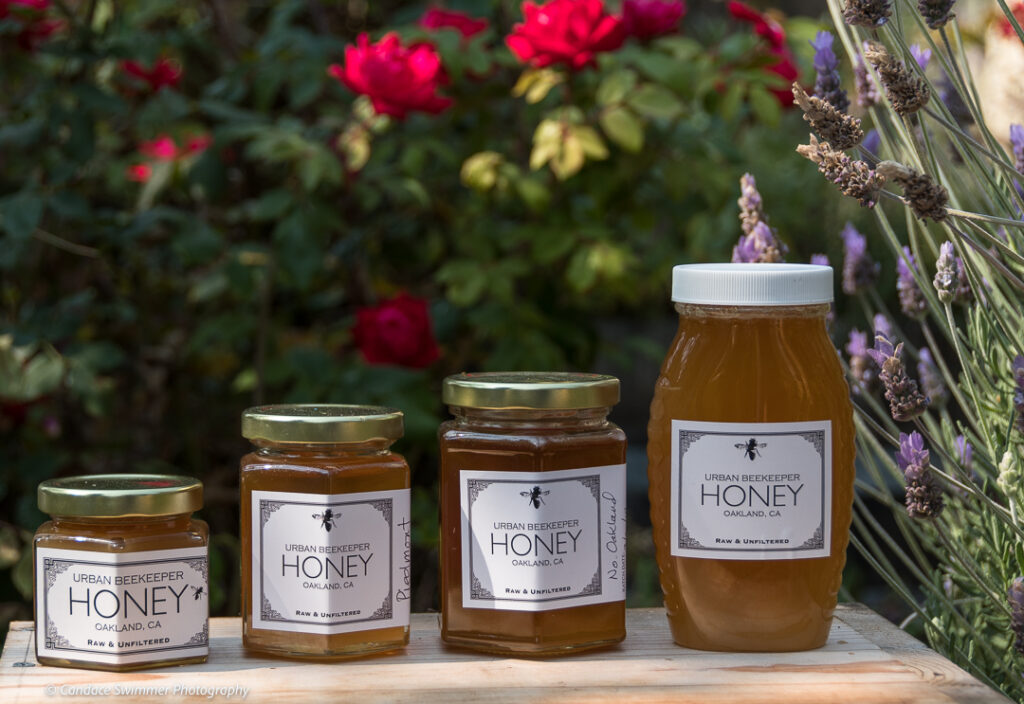Hives? In Oakland?
You betcha, or as we say in Oakland, “Hella Yeah”
I became a beekeeper after retirement from teaching for over 20 years. During my career as a teacher, I spent a number of years teaching science and the world of bees always fascinated me. I knew of the plight of the bee and the potential plight of our agriculture in California as a result and decided to become a beekeeper to do my bit.
Being an apiarist (the proper term for a beekeeper) is not a full-time job unless you have hundreds of hives. But there are work-intense seasons like spring when the bees are starting to build up their colony and relaxed periods like winter when there is less to do. I visit my hives every week during the spring and every 2 weeks during the summer and into Fall.
I sell seasonal honey locally and can ship directly to your home. In addition to harvesting honey, I clean and prepare wax for purchase by people who make their own salves, soaps, candles and cosmetics.
Honey Availability
Urban Beekeeper Honey: Bees in California will collect nectar year-round if there is plant nectar available. However, most responsible beekeepers will not pull honey after late Autumn to give the bees enough food for the winter. I begin pulling honey frames in the Spring and through the summer. The time of year as well as the location determines the flavor of the honey. One of the fun things about buying local honey is the chance to taste the variations of nature.
UPDATE July 2025: My current Piedmont harvest has produced a very sweet honey with not a big distinct taste. I consider it the preferred honey for sweetening teas as the character of the honey is not so forward that it will interfere with the special tea flavor you are brewing.
My North Oakland honey has come in this season with some caramel notes again this year! It is not as dark as the norm for hives in this area, but the flavor is bold! As I mentioned above, what the bees are harvesting from affects the taste of the honey so whatever they are landing on is really producing a rich taste!
This season I have had 2 new location added to my list: Alameda and Mills College. The honey from Alameda is rich and dark with some floral notes. The Mills College location is in East Oakland on the campus of Northeastern University which used to be Mills College so I kept the name as most local people know that better. The hives are in the organic garden and the bees are being very productive. The honey is similar to my regular Oakland honey but with more forward flavors.
Over the winter I lost all but 4 of my hives. Mite infestations and climate change both keep me on my toes to maintain healthy hives! But what that means is that I needed to re-establish hives in the early spring from swarms that I caught. It takes a year for colonies to become robust enough to be big producers in the Spring and early Summer. As a result my honey production is much smaller than previous years. I will not have all the locations all the time for that reason.
Stay Healthy and eat honey often!
